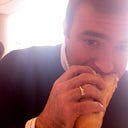Coming Out of the Snow
“It turns out that the powers that matter are attentiveness, innovative thinking, and alliance-building.” (Rebecca Solnit)
My family and I are coming out of the disaster of a winter storm that has wrecked Texas this week. It actually started last Thursday night. That was the day of the 100-car pileup in Fort Worth; here in Austin we lost power for the night. On Friday my school went 100% remote, and then after a brief respite on Saturday the roads were impassable again by Sunday afternoon. We lost power after we went to bed on Sunday night, and it came back on at about bedtime on Wednesday. Sixty-seven straight hours without power. During that time, the temperature outside ranged from seven to twenty-five degrees. Inside the house, the temperature dropped to 42 degrees. We spent hours huddled under blankets or sitting in our running cars. During this time, we couldn't go anywhere because of the roads, and even if we could, there was nothing to get by going — all of the stores were closed.
When I call this past week a disaster, here’s what I mean: I know families that only ate chips and power bars for three days, who burned their libraries, their fences, or their furniture to stay warm. Lina Hidalgo reported today that at least 10 people have been found dead of hypothermia in Houston, and that number will surely rise.
Everything’s not better yet. We’ve had a boil-water order since our power came on, and some of our friends still lack power. Pipes are bursting and people are dealing with the subsequent flooding. Most businesses are still closed, and our grocery stores are both packed with customers (a COVID nightmare) and empty of provisions. Still, the high today was 39, and it’s sunny, and I’m listening right now to the sound of snow melt outside my window.
We did okay during the outage. In fact, we lived (relatively) decently this week. By that I don’t mean we were comfortable or that we didn’t come close to despair — that our nerves didn’t fray, that we didn’t fear burning down our house or dying of carbon monoxide poisoning. All of that happened. We went days without bathing. But we had coffee every morning and fire every night. We even managed to eat well: on Tuesday morning, my wife made banana pancakes on the grill; Wednesday we had migas for lunch, made with tortilla strips Hannah fried in lard rendered from the bacon we had for breakfast.
That relative good life amid deprivation wasn’t a result of skill or preparation. It was a function of both privilege and luck. Privilege in that we have a house with a fireplace and a patio with a gas grill, a water filtration system and a garage full of tools. Luck in that we had stocked our kitchen with just enough of the right foods, that none of our pipes burst, that the outage didn’t go on for a day or two longer.
But our biggest stroke of luck was that we have good neighbors. Over our three-day freeze: one neighbor let us borrow his car adapter so we could charge a laptop, which provided us entertainment each night; another brought us six eggs; another offered us a spare propane tank and another made space on his grill when ours gave out at dinnertime. We tried to be good neighbors, too. We had abundant firewood, which we shared, and we boiled a pot of rice for a neighbor, which she used to make dinner one night. And all of us shared jokes and information and kept morale up for each other over our group chats whenever we had power and data on our cell phones.
Last April, reflecting on the lessons of the pandemic, Rebecca Solnit wrote: “It turns out that the powers that matter are attentiveness, and innovative thinking, and alliance-building.”
That’s a lesson I learned years ago, clearing land on a ranch in the Texas Hill Country. Ever since then, I’ve laughed when people try to portray rustic, country-living as the province of machismo-tinged rugged individualism. When you actually face the world denuded of luxury and the trappings of civilization, you quickly learn that what does and doesn’t count. Yeah, it’s good to be strong. It’s good to be prepared. It’s good to know what to do. But in this world you can never be strong enough, or prepared enough, or know enough. Someday, your strength, your knowledge, your preparation will fail you in an essential task. That’s why community-building is a first-order skill. A power that matters, in Solnit’s phrasing.
Anyway, cheers to good neighbors.
